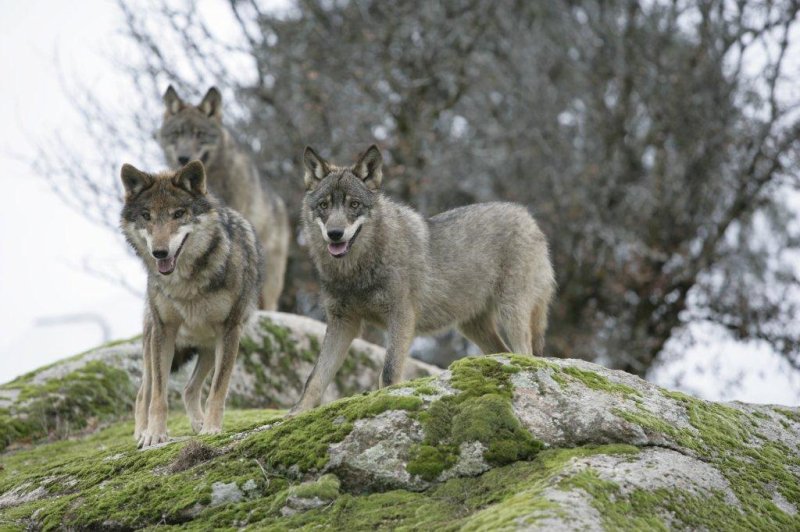Wolf-dog packs are increasingly common in Europe. Photo by Juan José González Vega/Wikimedia Commons
May 23 (UPI) -- Europe's population of wolf-dog hybrids is growing. In a new paper, scientists warn packs of wolf-dogs could soon erase the genetic identify of wolves.
"We need to address this issue before wolf-dog hybrids back-cross with wolves to the extent that wolf populations will be lost to hybrid swarms, and the conservation of wild populations will become unfeasible," Valerio Donfrancesco, an ecologist at the University of Exeter, said in a news release.
According the latest research, part of the problem is a lack of information, as well as a lack of agreement -- over the details and seriousness of the problem -- among scientists.
"The fact that we know so little about the ecology, behavior and social acceptance of the wolf-dog hybrids adds a layer of concern to the issue," Donfrancesco said.
Scientists and policy makers remain divided over how to deal with the problem of hybrids and free-roaming dogs. Some researchers advocate keeping feral dogs and wolf-dogs in captivity. Others suggest sterilization is the best solution. A few argue culls are the only effective means of control.
"The disagreements emerged from diverging ethical values between scientists of different backgrounds, such as ecologists and geneticists, from the lack of data on the effectiveness of different interventions and from the worry of some scientists that on practical grounds allowing the removal of hybrids would open a legal loophole for the killing of wolves," Donfrancesco said.
But authors of the latest study, published in the journal Frontiers in Ecology and Evolution, warn avoiding the problem won't make it go away. Scientists hope that by talking through their disagreements, they can come to some kind of consensus on the urgency of the problem and begin to pressure stakeholders to address the issue.
With wolf populations of varying sizes found throughout Europe -- and a total population of more than 17,000 -- the problem will require input and cooperation from wide range of researchers and decision makers.
"We hope that by highlighting areas of disagreement and why they occur, we will be able to build a more unified scientific opinion and aid an effective management of this urgent issue," Donfrancesco said.















